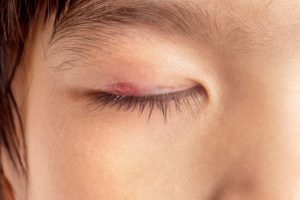 Eyes have always been considered the window to the soul. Arguably the most magnetic part of our face, the eyes convey all emotions we’re experiencing. Without saying a word, we can communicate by just looking at each other. Love, hate, fear, anger, lust, sorrow, excitement, indifference—it’s all in the eyes. Eye contact plays a crucial role in establishing rapport with a new person, be it a potential employer at a job interview or an attractive person you’re trying to ask for a date. Your eyes cannot lie, and there is a simple physiological explanation to it: you can’t control pupil size. When you’re interested in something or someone, your dilated pupils give it away, just like tiny pupils give off your indifference.
Eyes have always been considered the window to the soul. Arguably the most magnetic part of our face, the eyes convey all emotions we’re experiencing. Without saying a word, we can communicate by just looking at each other. Love, hate, fear, anger, lust, sorrow, excitement, indifference—it’s all in the eyes. Eye contact plays a crucial role in establishing rapport with a new person, be it a potential employer at a job interview or an attractive person you’re trying to ask for a date. Your eyes cannot lie, and there is a simple physiological explanation to it: you can’t control pupil size. When you’re interested in something or someone, your dilated pupils give it away, just like tiny pupils give off your indifference.
And there’s more. Your eyes are also the window to your health and can give away a lot about your physical well-being. Watch out for these warning signs and see your doctor if you notice any of the following.
6 warning signs of a health problem
Advertisement
Stye: A stye is a very common eye condition and most people get one at some point in their life. It looks like a lump or a pimple on the eyelid and is often accompanied by pain, swelling, and redness. Usually, it appears out of the blue and resolves on its own in a few days. If this is the case, it’s pretty harmless. A stye is a serious cause for concern, however, if it doesn’t go away after three months or keeps reappearing at the same spot on the same eye time and time again. This could be a rare type of cancer called sebaceous carcinoma. (Start fighting for your sight now while you still have time.)
Eyebrow hair loss: This one is not that common, so if it does happen, you can’t really miss it. Thinning eyebrows, especially on the outer edge, indicate a thyroid problem—specifically, hypothyroidism (an underactive thyroid) and it should be taken as a call to get your thyroid checked.
Bulging eyes: If your eyes don’t typically do this, random eye bulging is another call to check your thyroid. This time, the diagnosis in question is hyperthyroidism (overactive thyroid). Thyroid problems and bulging eyes are usually caused by Graves’ disease, an autoimmune condition in which the tissue around the eyes becomes inflamed, resulting in the protruding effect. (Reduce your risk of age-related vision loss by more than 80%.)
Blind spots: If you notice a blind spot in your vision, don’t ignore it. It can be a symptom of something serious and should be checked by your doctor. If you see blind spots, flashing lights, or zigzag lines, for example, you may be experiencing a migraine with an aura—a condition in which a headache is preceded by changes in vision.
Yellow eyes: This is a telltale sign of jaundice and requires immediate medical attention. In adults, jaundice can be caused by a gallbladder, bile duct, or liver problem. The color change is not permanent, and once the health problem is resolved, your eyes go back to normal.
Advertisement
Blurry vision: If you spend hours staring at a computer smartphone screen, whether it be for work or for fun, you may very well be suffering from so-called computer vision syndrome, manifested through blurry vision. While it is not a specific eye condition per se, it encompasses a whole spectrum of eye strain and pain symptoms. Don’t write off computer vision syndrome as simply a cause of discomfort—in the long term, it can be detrimental to the quality of your vision. Give your eyes a break from time to time and cut your screen time. (Harvard scientists lead the way to fight for your vision.)
Nobody knows your body as well as you do. By paying more attention to your regular habits, your appearance, and your well-being, you can spot changes early on and even avert a crisis. Remember, the earlier you detect a health problem, the easier it is to resolve.
Related: Yoga for eyes: Easy eye yoga poses to improve vision
